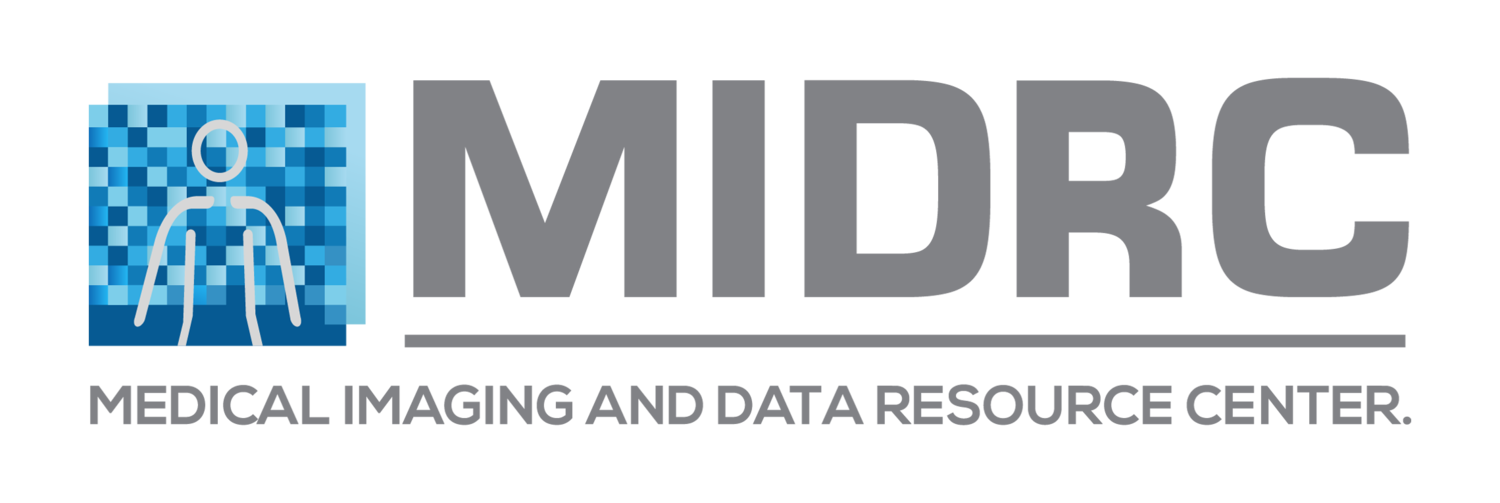
Updated April, 17, 2023
NEW!
MIDRC is the place for you to share your NIH grant data to satisfy the new NIH Data Sharing Policy
NIH has issued a data management and sharing policy that requires all researchers applying for NIH funding on or after January 25, 2023 to have a plan for data management and sharing. This policy will greatly improve access to data while promoting replicability. This can also put a new burden on your research efforts. The data management experts at MIDRC can help.
MIDRC is a cloud-based data ecosystem that goes beyond simple data ingestion, enabling long-term data re-use and AI algorithm development through data curation services including image normalization, harmonization, and annotation as well as linking with clinical data in other repositories. Users from over 260 institutions/companies have engaged with MIDRC. MIDRC has curated and released over 100,000+ imaging studies to the public. Note, a benefit of sharing on MIDRC, will be that you data will not just data in the cloud, but data that are well curated and AI/ML ready.
Contact the MIDRC team through the form at the bottom of this page to learn more about how we can support you in data sharing, including MIDRC’S services for harmonization of data management activities at three critical stages: (1) intake, curation, de-identification, abstraction, and quality assessment, (2) annotation and labelling of images and other data using semi-automated approaches, and (3) distributed user access and data discovery methods, including cohort building for AI/ML applications.
Below is the boilerplate language that can be inserted into your NIH grant, along with your grant details, data sharing budget, and an optional letter directly from MIDRC.
MIDRC Data Sharing Boilerplate Language for Grant Submitters:
Imaging and associated clinical data generated by this NIH-funded project will be shared on MIDRC (the Medical Imaging Data and Resource Center; https://www.midrc.org/ and https://data.midrc.org/ ). The MIDRC Data Commons provides access to data. Contact the MIDRC team midrc-support-request@lists.uchicago.edu to learn more about its functions for harmonization of data management activities at three critical stages: (1) intake, curation, de-identification, abstraction, and quality assessment (2) annotation and labelling of images and other data using semi-automated approaches and (3) distributed access and query methods. Currently the MIDRC imaging data are collected from multiple sources including academic medical centers, community hospitals, and others, and the resources offered by MIDRC are open to registered researchers from academia, industry, and government. The PIs images and data will be shared on MIDRC with open access with the goal to allow for the FAIR use of the images and data.
Contact us about how MIDRC can help you fulfill the NIH data management and sharing policy:
Questions? Please check out our answers to frequently asked questions!
How to acknowledge 1) MIDRC funded research and 2) use of data downloaded from the MIDRC Data Commons

